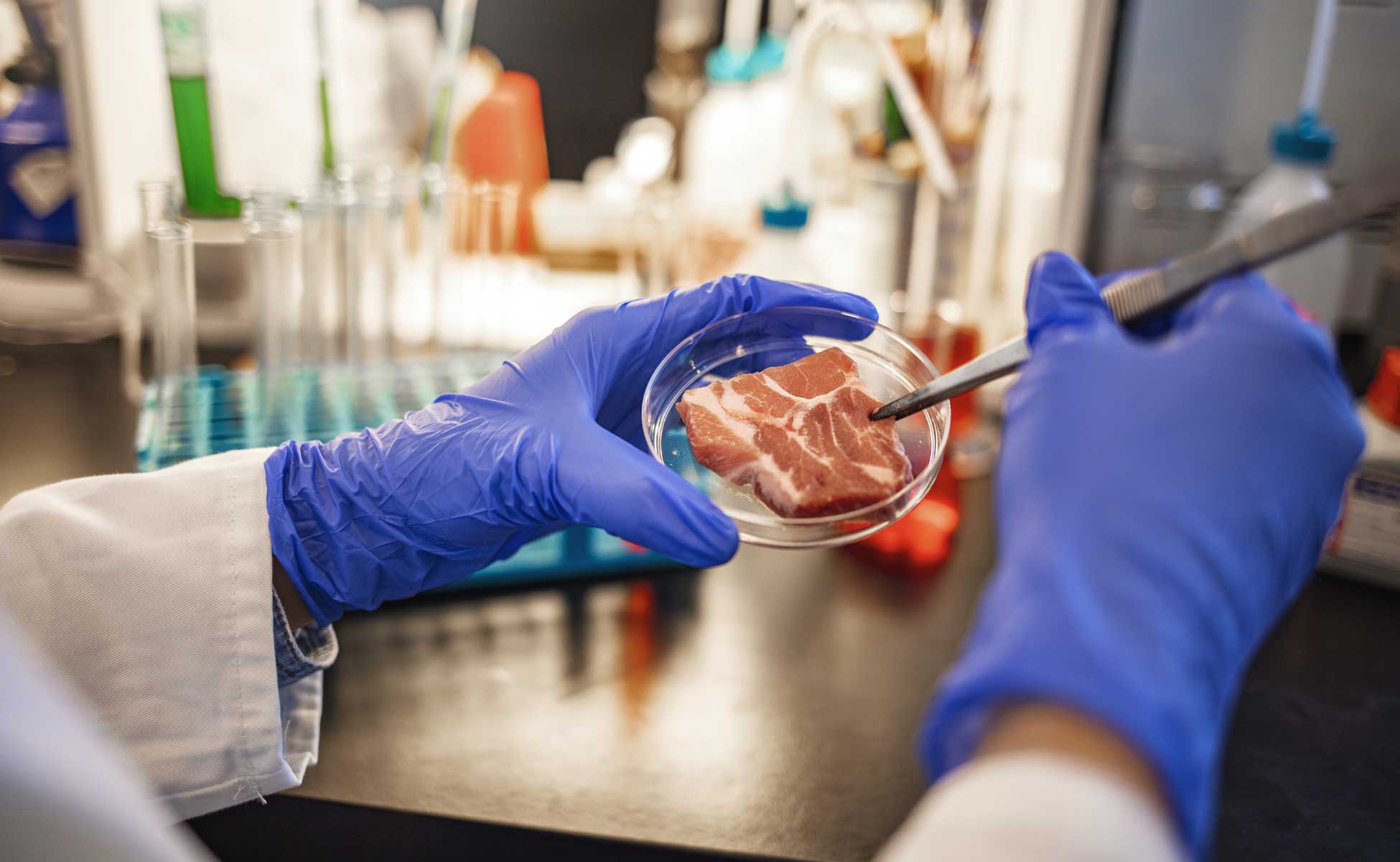As well as looking forward to see the new technology that will shape traditional meat processing, delegates at the BMPA Conference were able to look left and right to see the emerging challenges nipping at the industry’s heels courtesy of Professor Paul Wood of Monash University in Australia.
Professor Wood delivered an entertaining presentation that took a cold, hard look at the nascent cell-based meat industry. It’s worth recalling his closing predictions: that all food will eventually be marketed on the basis of nutritional value versus environmental footprint; and that cell-based meat will not be transformational as some are claiming, but that it will become a niche, high-value market that is ultimately not scalable. Here’s why.
Not all proteins are equal. Taste, texture, nutritional profile and quality vary hugely between products. Despite persuasive marketing claims that cultured meat (and plant-based alternatives for that matter) can replace meat in our diets, nobody has yet provided a true nutritional profile. Nor has anyone been able to prove its sustainability credentials, or even it’s financial viability.
Professor Wood laid out some illuminating figures on just how capital-intensive cultured meat production is, from the cost of the culture media itself (coming in at between $2.50 to $10 per litre), to the massive energy requirement to run these factories. He also highlighted the cost of maintaining a strict sterile environment, similar to the bio-containment required in the conventional meat industry.
Perhaps the highest hurdle that cultured meat must clear is that of scalability. He used the example of Upside Foods which, despite its relatively large pilot factory valued at over $1 billion, can only produce 50,000 lbs of cultured meat per week. That’s the equivalent of three carcasses. Professor Wood revealed that, as things stand, the cost to manufacture would have to come down 1000-fold to compete with real meat. We had to check our notes before writing that last sentence.
Capital markets are becoming more sceptical and, for now, investment in the sector is declining along with the share price of many of the pioneer companies. Some, like Meatless Farm have fallen into administration under a mountain of debt, taking down creditors in the process. However, Professor Wood still believes that this is a temporary stagnation – more of a blip than a decline.
To return to his predictions, there will be a place for cultured meat but, given the nature and structure of the product (or more precisely the lack of it), this novel food will be confined to niche markets and most likely to blended products like sausages and, an Aussie favourite of Professor Wood, the humble rissole.
Members can view Professor Wood’s presentation here.
About BMPA
The British Meat Processors Association (BMPA) is the leading trade association for the meat and meat products industry in the UK. Our members collectively employ over 75,000 people in the UK and the industry is worth over £12 billion a year to the British Economy.
For more information about this topic or to speak to an expert contact us.


